Dr. Maeno introduced himself as an engineer who wanted to contribute to developing the Japanese economy in resource-poor Japan and was involved in research on camera motors at CANON INC. And then, He explained the definition of "well-being," the relationship between happiness and productivity, and the benefits that happiness brings, etc., based on the results of various studies. He showed us interesting research results such as "the relationship between age and happiness draws a large U-curve" and "certain personвАЩs ability to hold memories tend to be negatively correlated with positive affects."
Communities
Evening LoungeгААLecture on studies on subjective Well-being and Happiness by Dr.Takashi Maeno (Visiting Professor)
Eikei University of Hiroshima will hold an "Evening Lounge" as part of its support for students' competency development and career guidance.
This time, we had an English lecture on "Well-being and Happiness" by Dr. Takashi Maeno, Professor, Graduate School of SDM, Keio University, one of Japan's leading researchers on well-being.
| жЧ•жЩВз≠Й |
Wed, 2nd November 2022гАА5:10 p.m. - 6:50 p.m. |
|---|---|
| еѓЊи±° |
EUH students participate in person, others online |
| иђЫжЉФгВњгВ§гГИгГЂ |
Studies on Subjective Well-being and Happiness |
| иђЫеЄЂ |
Dr. Takashi MaenoгАА Professor, Graduate School of SDM, Keio University |
What Research on Happiness Shows Us.
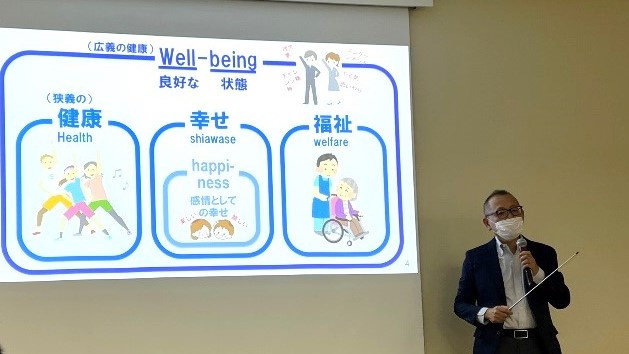
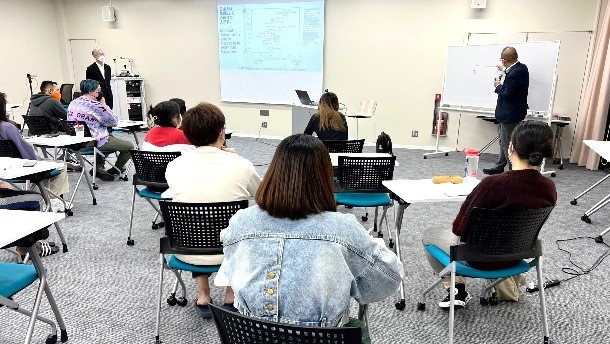
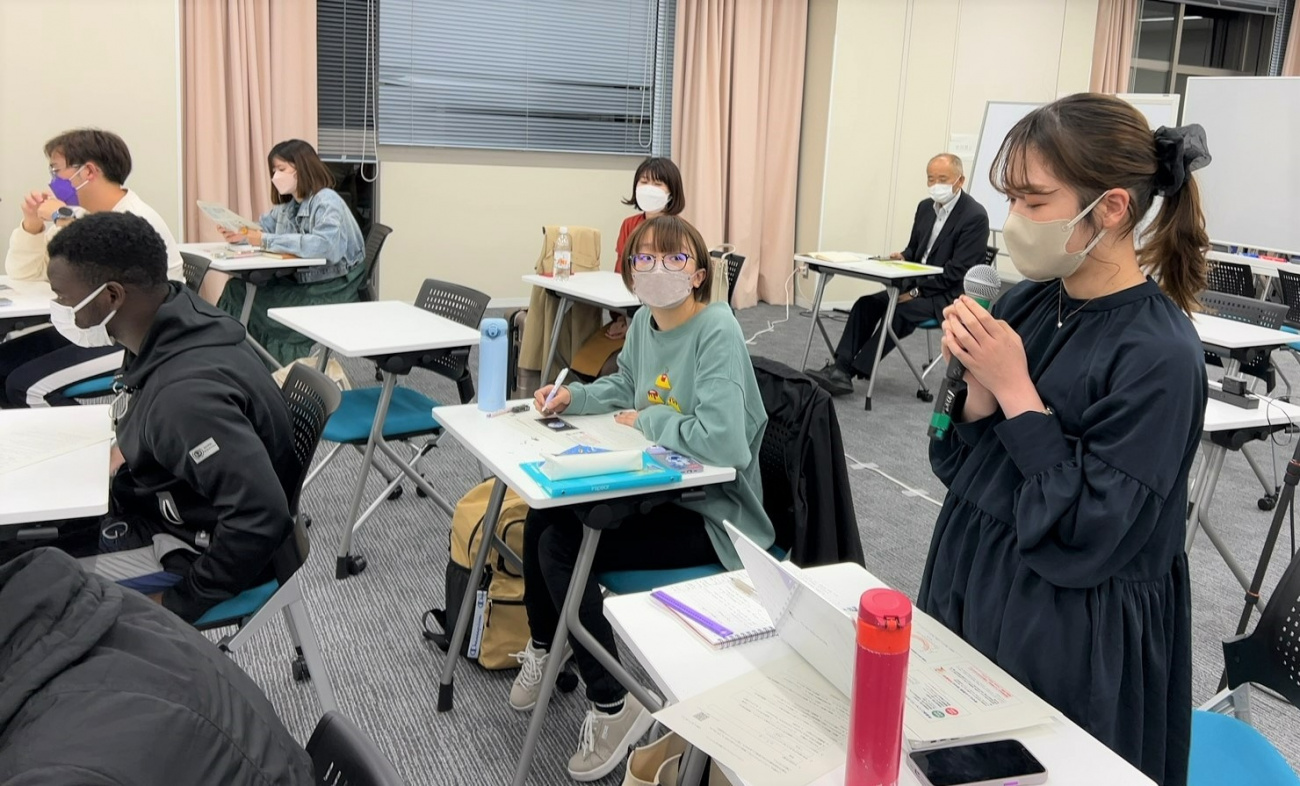
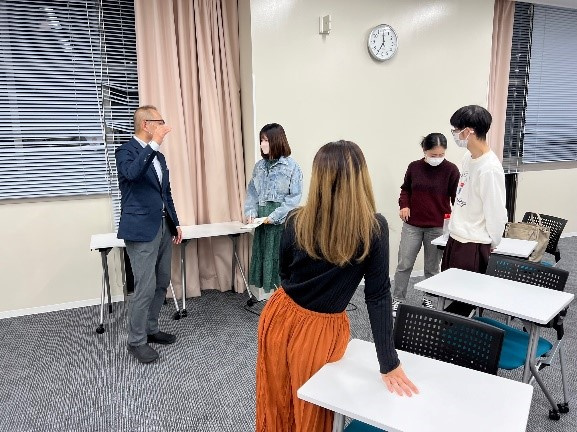
The second half of the presentation summarized how to be happy. Research has shown that " positional goods," such as possessions, are less likely to lead to long-lasting happiness, while happiness with "non-positional goods" is more long-lasting. He said that happiness has four factors: 1, self-realization and growth (LetвАЩs try factor) 2, Relationships and gratitude (Gratitude factor) 3, Optimism and positivity (You can do it factor) 4, Independence and identity (Be yourself factor).
In order to be happy, he gave some examples that were easy for the students to understand and encouraged them to " experience a lot of things and get advice from friends and others around you.
In the question-and-answer session, Japanese and international students asked many questions, such as "About the happiness of the elderly," "How can Japanese people be happy," "What do you think about the fact that good things are born because of the worrying Japanese," and "How do you measure happiness? "
It was impressive to see Dr. Maeno's gentle and positive attitude as he answered each question by saying, "That's a good question," or "You are right.
After the lecture, students gathered around Dr. Maeno and actively exchanged opinions.
Thank you very much for your valuable talk, Dr. Maeno.
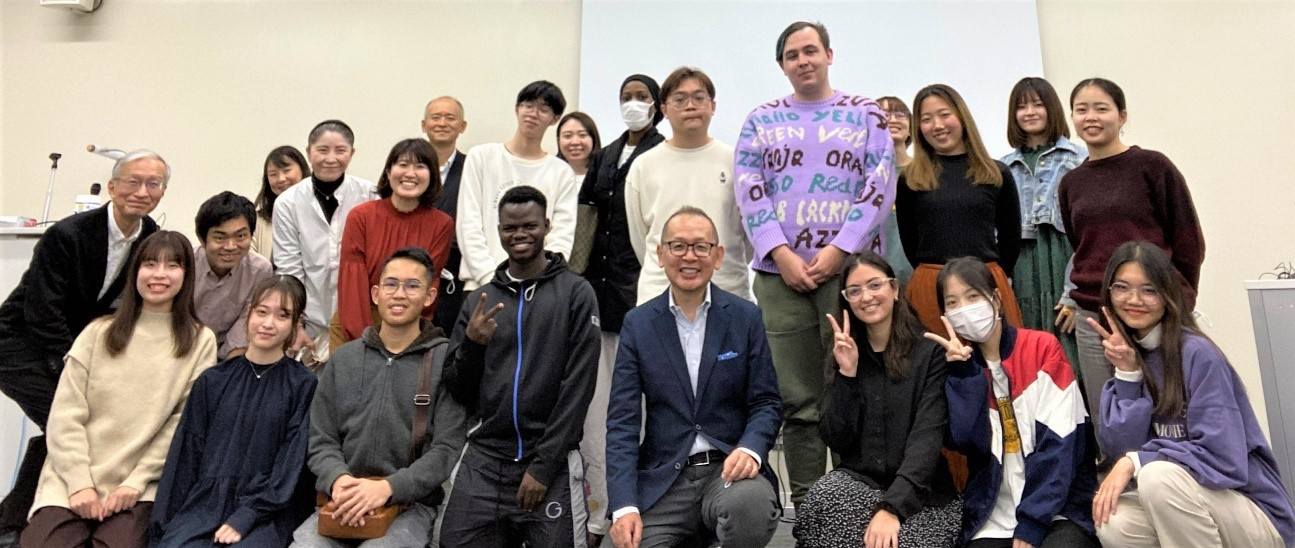
Other News
-
07/23/2024
EUH brochure 2025 is now available!
-
07/19/2024
гАРгГ°гГЗгВ£гВҐеЗЇжЉФгАС7/20(еЬЯ)жЧ©зФ∞жХЩжОИгБМгГЖгГђгГУжЦ∞еЇГе≥ґгАМгБ≤гВНгБЧгБЊзЬМи≠∞дЉЪгГАгВ§гВЄгВІгВєгГИгАНгБЂеЗЇжЉФгБЧгБЊгБЩ
-
07/09/2024
Exchange class with high school students from Hawaii
-
05/28/2024
EUH Novelty Goods Contribution to a Sustainable




